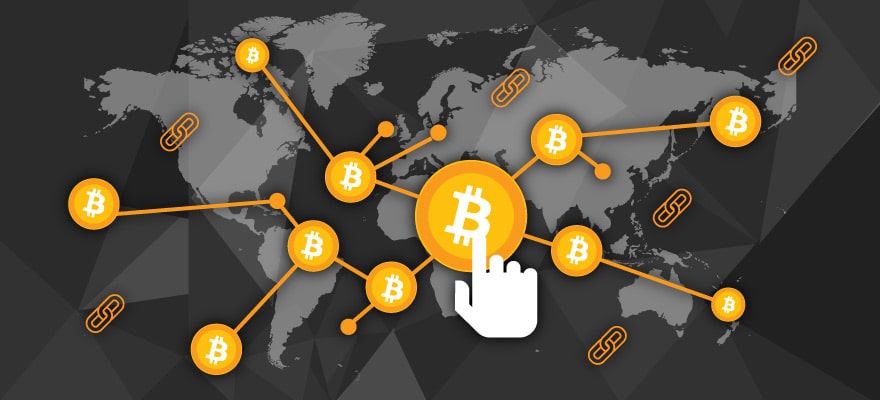Within the last several weeks, the price of Bitcoin has surpassed $8000. Many cite the cause of the boom to the fact that CME announced that it will be offering Bitcoin futures trading by the end of the year. Even JP Morgan, whose CEO Jamie Dimon has famously been quite critical of Bitcoin, is considering offering its clients access to the new trading options.
As cryptocurrency is garnering more and more attention around the world, governments are recognizing the need to address the issue of Cryptocurrencies - and fast. In just the last several weeks, South Korea, Malaysia, Morocco, Gibraltar, and the Philippines have taken action to clarify the legal status of cryptocurrency.
Attitudes are mixed; some see the rise of cryptocurrency as an opportunity for economic growth. Others are approaching crypto with caution; others still have raised their boots to all but stamp out cryptocurrency.
Malaysia and the Philippines: Keeping an Open Mind
The Bank Negara Malaysia (BNM, the central bank of Malaysia), recently announced that it would officially designate persons and entities who convert cryptocurrencies into fiat as 'reporting institutions', according to a report from Channel News Asia. The new legal designation is part of efforts to regulate crypto under the Anti-Money Laundering, Anti-Terrorism Financing, and Proceeds of Unlawful Activities Act 2001 from 2018.
“We need to prepare ourselves, as according to many pundits, digital currencies will become the new norm," said Muhammad Ibrahim, governor of the BNM. Malaysia’s efforts to regulate cryptocurrency seem to be partially coming from an anti-crime and anti-terrorism ethos, something that has not been in the foreground of regulatory moves of many other countries.
Regulating with a more financially-focused attitude, the Philippines is considering regulating (and therefore legalizing) cryptocurrency as a security.
Emilio Aquino, the commissioner of the Philippine Securities and Exchange Commission, recently said: “The direction is for us to consider this so-called virtual currencies offerings as possible securities in which case we will apply the Securities Regulation Code.” The regulatory push largely came from the rising global popularity of ICOs.
Nestor Espenilla Jr., governor of the BSP (Bangko Sentral ng Pilipinas), said separately that the Philippine central bank was keeping an “open-minded approach” toward cryptocurrency, citing the fact that two cryptocurrency exchanges have already been officially registered with the BSP. According to CryptoCoinsNews, the bank is considering adding several more.
Melchor Plasaban, deputy of the BSP, seems to be especially optimistic; for him, the benefits of cryptocurrencies outweigh the risks, which he believes can be managed. “If you want something that is fast, near real-time and convenient, then there’s the benefit of using virtual currencies like bitcoin,” he said last month.
Gibraltar: A Strategic View
As larger countries around the world continue to crack down on the practice, smaller countries seem to be seeing the crypto boom opportunistically. In the European Union, the small nation of Estonia was the first to propose the concept of a national cryptocurrency; the idea was later shot down by the ECB, which was unfriendly toward the idea.
The tiny UK territory of Gibraltar, located on the edge of Spain with a population of just 30,000, recently issued a statement expressing a rather lax attitude toward allowing tokens secured through ICOs to be legally considered as securities. “Tokens vary widely in design and purpose. In some cases, tokens represent securities, such as shares in a company, and their promotion and sale are regulated as such,” said the statement.
In Morocco, Crypto Is a No-Go
Morocco’s attitude toward cryptocurrencies has been especially hostile, although the government claims that its strict approach is an effort to protect its citizens from the risks associated with crypto and ICOs. The world’s largest governments who are attempting to put a lid on crypto trading within their borders have targeted domestic exchanges (i.e. China and Russia). Morocco, on the other hand, has stated that anyone using cryptocurrency within the country could be subject to penalties.
According to a translated press release, cryptocurrency transactions violate “exchange regulations.” The press release also contains language urging consumers to only use currencies authorized by the Moroccan central bank, the Bank Al-Maghrib.
South Korea: FSS Will Not Regulate Crypto; Legal Grey Zone Remains
South Korea instituted a ban on ICOs in mid-October, soon after the full roll-out of China’s crypto-related bans. However, South Korea did not take any further steps against cryptocurrency; then again, it hasn’t taken any steps towards it, either.
Apparently, it is not going to. A report in the Korea Times issued on November 23 said that the South Korean Financial Supervisory Service has “no plan to supervise transactions” of Bitcoin or any other cryptocurrency, because they are not considered to be “legitimate” cryptocurrencies.
According to FSS Governor Choe Heung-sik, cryptocurrencies do not function as transactional tools, and are nothing more than speculative subjects. The reason that the FSS will not regulate cryptocurrencies is “is the same with the fact that we don't regulate or supervise casinos," Choe told reporters. Regulations will only come when - and if - cryptocurrencies gain legal recognition as legitimate assets.
All’s Well That Ends Well
Because the technology behind cryptocurrency is so young, predictions about the future - positive or negative - are just that: predictions. As cryptocurrency and blockchain technology becomes (or does not become) a larger part of our societies and financial systems, these early rounds of legislation will most likely need to be adjusted.
Attitudes will change. Legal battles will be fought; scandals may happen. No matter what happens, the potential for massive growth is there, without a doubt. The nations of the world can deny it, but they can no longer ignore it.






















